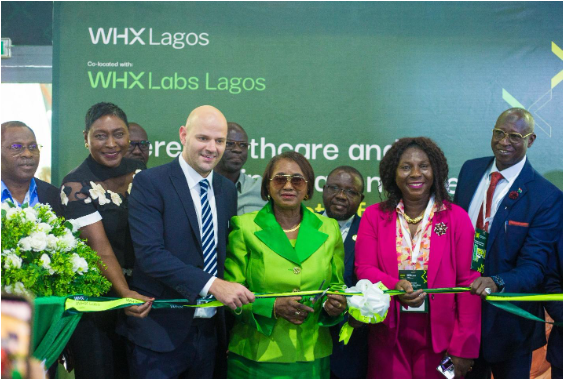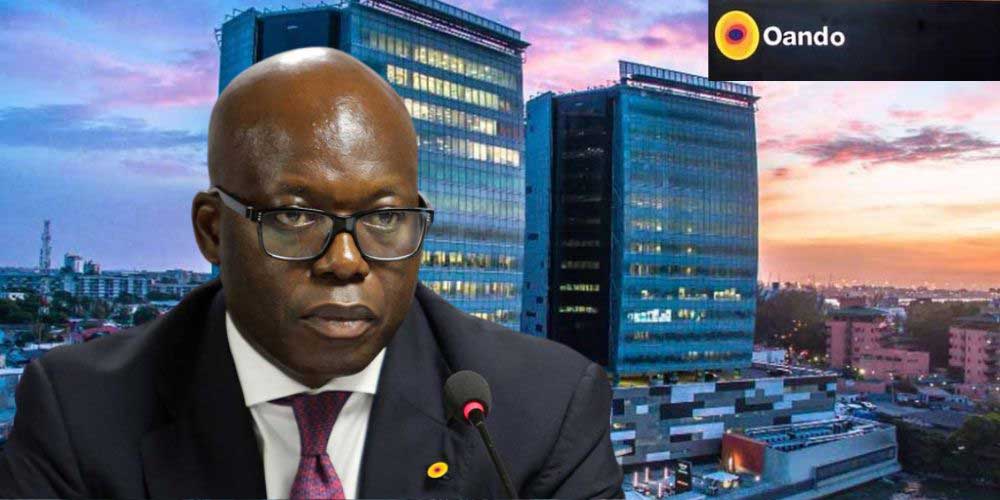NDIC, UBA Advocate Stronger Bank-Fintech Partnerships To Drive Real Sector Growth
The Nigeria Deposit Insurance Corporation (NDIC) and United Bank for Africa (UBA) Plc have said that to achieve a $1tn Gross Domestic Product (GDP) by 2026, collaboration between banks and fintech companies is essential for driving growth in Nigeria’s real sector,
Speaking at the 2024 annual conference of the Finance Correspondents Association of Nigeria (FICAN) in Lagos, themed “Nigeria’s Journey Towards a $1trn Economy: Impact of Banks’ Re-Capitalisation, Opportunities for Fintechs and the Real Sector,” the Managing Director/Chief Executive of NDIC, Mr. Bello Hassan, stressed the importance of the Central Bank of Nigeria’s (CBN) current recapitalization initiative.
He emphasized that its effective implementation is critical for strengthening the resilience, solvency, and capacity of Nigerian banks, enabling them to absorb shocks and continue supporting the nation’s economic development by efficiently fulfilling their role in financial intermediation.
Hassan underscored the need for strong, well-capitalized banks to support the government’s bold vision of growing Nigeria’s economy to $1trn, urging financial sector players to recognize this role.
“The opportunities for real sector growth depend significantly on the availability and affordability of financing. To achieve the level of financing required, the collaborative potential between banks and fintechs must be fully harnessed,” he stated.
Hassan also highlighted the importance of understanding the interconnectedness of financial service providers and the need for effective regulatory oversight to ensure the optimal functioning of the financial system.
He noted that many Nigerian banks have historically focused on large corporations, neglecting small and medium enterprises (SMEs) and the financially underserved.
In contrast, fintechs have the potential to bridge this gap by offering innovative financial services through the application of new technologies and reducing the barriers typically associated with traditional banking.
Despite the opportunities fintech presents, Hassan cautioned that the system may face increased risks, particularly in areas such as data privacy, customer protection, transparency, and cybersecurity.
“This has made regulatory oversight more complex. Regulators must assess existing frameworks and consider adopting new regulations to address the challenges and opportunities brought about by technological innovations,” he added.
Discussing the broader economic vision, Hassan noted that the policy direction initiated by President Bola Tinubu represents the starting point for a national policy overhaul and alignment of efforts by key stakeholders to achieve the $1trn GDP target.
He also highlighted the efforts of the CBN and NDIC in repositioning the banking industry to better serve the real sector and other areas of the economy.
Key initiatives such as the CBN’s foreign exchange rate unification and the recapitalization of banks are critical components of the national strategy for economic growth.
According to Hassan, the foreign exchange rate unification policy has the potential to increase foreign direct investment, attract portfolio inflows, boost investor confidence, reduce the national budget deficit, and improve Nigeria’s sovereign credit ratings.
“The goal of the CBN and NDIC is to promote a safe, sound, and stable banking system capable of providing the necessary financing for the country’s productive sectors. This is essential to Nigeria’s journey towards becoming a $1trn economy,” Hassan concluded.
Also, the Group Managing Director of United Bank for Africa Plc (UBA), Mr. Oliver Alawuba, represented by the Executive Director of Finance and Risk Management, Ugo Nwaghodoh, stated that achieving a $1 trillion economy is not just a vision but a shared responsibility.
He called on banks, fintech innovators, the real sector, and regulatory institutions to collaborate in driving this transformation.
“We are on the cusp of a new era defined by innovation, resilience, and sustainable growth. Let’s seize this opportunity to collectively shape Nigeria’s future, ensuring prosperity is shared and opportunities are abundant,” Alawuba said.
He further noted that Nigeria boasts the largest fintech market in Africa, with a growing number of startups providing solutions to the inefficiencies in the traditional banking sector.
“As we move towards a $1trn economy, fintech is poised to play a critical role in expanding financial access, driving innovation, and fostering competition within the financial system,” he added.
NDIC, UBA Advocate Stronger Bank-Fintech Partnerships To Drive Real Sector Growth is first published on The Whistler Newspaper



